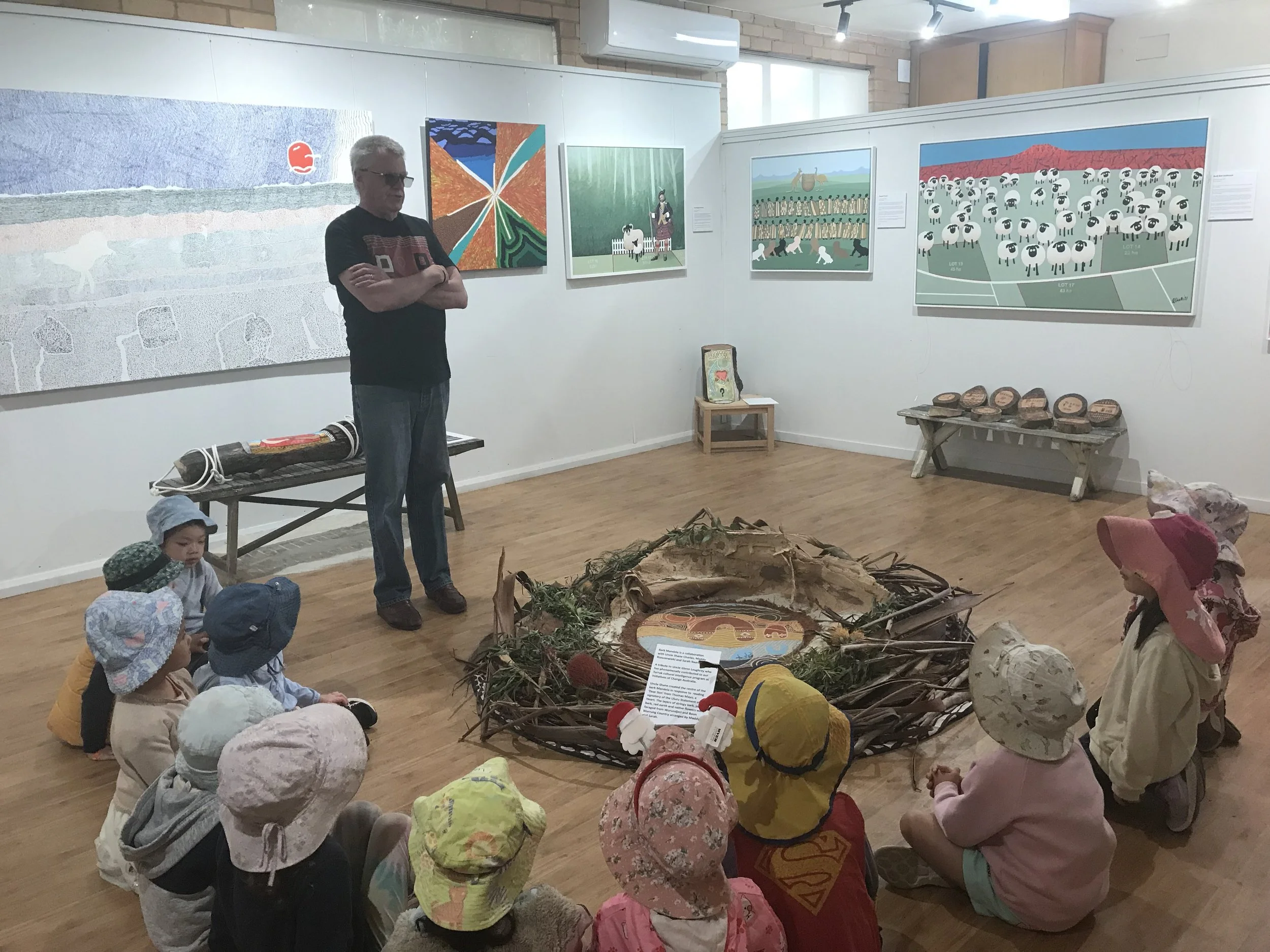Term 1 Hot Topics
Uluru Statement from the Heart, The Australian Wars & The Voice
If you feel you’ve been thrown in the deep end, Empower to Teach is here with help.
School is almost back, at the same time as the discussion in the community about The Voice to Parliament is starting to really heat up. Kids are going to have questions, regardless of year level or depth of knowledge, teachers are - again - in the spotlight.
"If you’re getting questions or hearing chatter about The Voice, that’s fantastic. It’s an opportunity to open young minds and hearts to the history, experience and reality of indigenous people,” says Uncle Glenn Loughrey, founder of Empower to Teach.
Uncle Glenn’s top tips for Term 1:
Finding our Heart by Thomas Mayo is a book for reading ages 5 - 10 years old (published by Hardie Grant Publishing). It explains how the Uluru Statement From the Heart came about and what a First Nations Voice means for indigenous people in Australia. The book is colourfully illustrated and easy to understand and builds on simple concepts of family, place and acceptance.
Thomas doesn’t beat around the bush, either. Finding our Heart is simply put and unambiguously ethical, with a clear call to action. Pretty good for the grown-ups as well as youngsters.
For older kids and young adults , the Rachel Perkin’s directed, produced and presented SBS/NITV series The Australian Wars is an engaging way to explore history through First Nations eyes.
>> Available via SBS OnDemand.
The three part series uses actors of breathe life into what Rachel herself describes as “a hard history” with plenty of commentary from historians and First Nations peoples. There is plenty in the media to draw on to inform any classroom discussion from multiple angles.
>> Check out the great teachers resources developed for the SBS series here.
Realising connections
If you’re having a more robust conversation with older students about the Statement from the Heart in relation to reconciliation and treaty and how it relates to The Voice, feel free to use the following diagram. It shows how these different elements interact through various stages of the journey to reconciliation.
Author: Associate Profesor Glenn Loughrey
Makaratta is what some Aboriginal people proposed as an alternative name for the treaty process by Aboriginal people. Makaratta means ‘walking with a limp’ and refers to a Yolngu word which describes a spear through the thigh of a person with the intent of a peaceful resolution and/or a practical reminder of a justice process.
Unpacking the Statement from the Heart was the title of the Richard McKinney Memorial Advent Lecture given by Uncle Glenn in 2022.
You can read the full lecture here with references. It’s not an academic study but rather looks at what the Statement from the Heart IS and what it IS NOT.
If you’re looking for something more focused, Uncle Glenn’s Voice No Obstacles breaks things down and gives you some easy responses for the common objection based on the disinformation ‘they need more detail.’ You can read his full article on his blog here.
The final word from Uncle Glenn:
“Teachers could be the vital link for getting the YES vote for the Voice. Beyond that, whatever the result, keep up the good work. The young minds who are shaping up during this time will be all the wiser and better able to understand First Nations issues thanks to you.”
To discover more, you can sign-up and download our teachers resources packages here.



